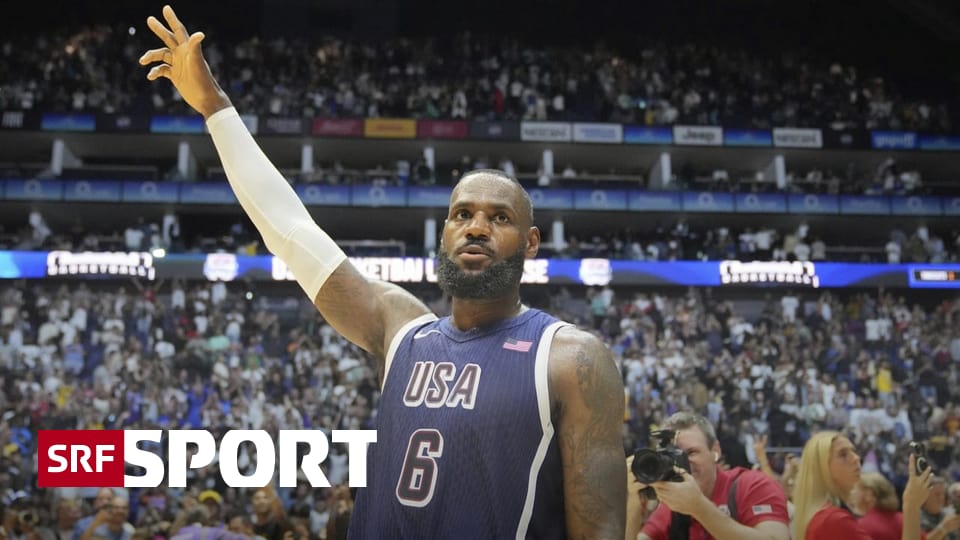Mainz/Koblenz (dpa) – Rarely does anyone walk around without glasses or contact lenses if they have poor eyesight. But if you have hearing loss, not everyone wears a hearing aid. This has negative consequences that extend beyond hearing. Many prejudices about hearing aids are now outdated, hearing care professionals say. The latest systems are almost invisible, and thanks to artificial intelligence, they can do much more than just ensure better hearing.
Researchers at the University of Mainz evaluated data on 5,024 people in 2023 – from young people to those over 80 years old. They found that nearly half of the participants met the hearing aid requirements on both sides according to so-called hearing aid guidelines. But only 7.7% actually have two hearing aids. On average, women's hearing was better than men's. With increasing age, there has been a significant increase in the prevalence of hearing disorders.
'Huge shortage of supply'
Koblenz audiologist Eva Kiel-Becker knows the biases people have towards hearing aids. “It was seen as a stigma. Hearing aids looked like skin-colored bananas.” Those times are long gone. “Modern hearing aids are marvels of technology, the smallest portable computers in the world,” Kyle Baker says ahead of World Hearing Day on March 3.
Many people do not notice their hearing loss until very late
But the “huge shortage of supply” of hearing aids also has another reason, believes the Mainz-based vice president of the European Association of Hearing Care Professionals (EUHA) and managing director of a family business with more than 20 specialty stores: “Hearing loss is a very important thing.” “A gradual process. Until you notice it, it takes an average of seven years.” According to the EUHA, 5.4 million people in Germany have hearing loss, including more than 500,000 children.
Hearing loss increases the risk of Alzheimer's disease
If you have difficulty hearing, it's not enough to ask the other person to speak more clearly or to turn up the TV volume. For example, hearing loss is often accompanied by dizziness and tinnitus, says Kyle Baker.
Those who have difficulty hearing also have an increased risk of developing dementia. An international research group (Lancet Commission on Dementia and Prevention) has listed twelve risk factors that increase the risk of developing Alzheimer's disease – hearing loss being one of them. “The brain needs input,” says Frank Jessen, head of the Alzheimer's Prevention Center in Cologne, explaining the connection. Those who have difficulty hearing receive less information and are therefore more susceptible to developing Alzheimer's disease. Therefore, a hearing aid should be as clear as glasses.
Higher frequencies fail first
In typical age-related hearing loss, the high frequencies are lost first, the hearing care professional explains to her clients. Most consonants and therefore the majority of information are in the high pitch range. Kyle Baker often hears a phrase from many people: “I hear, but I don't understand what is being said.”
So the first step is to get a hearing test. If a hearing aid is recommended, the client should be clear: “There's no new hearing ability at the push of a button,” says Kyle Baker. “It's not like going to the eye doctor, where you wear glasses and can see fine.”
The three Cs: comfort, sound, and cosmetics
Choosing and fitting a hearing aid is no easy matter. Because the range of devices is large and customer needs are different. An acoustician is guided by “the three Cs,” as Kyle Baker explains: “comfort, sound, and cosmetics.” Anyone who goes to concerts often or is a professional musician needs perfect sound quality. For people who do a lot of sports, it is important that the device is sturdy.
Unlike glasses, statutory health insurance companies pay a lot more, according to Kyle Baker, from 700 to 800 euros per side. If you don't want to pay anything extra, there are basic models that only require an additional payment of ten euros per ear.
Integrated fitness tracker and other extras
The latest devices have many additional functions – and are constantly adding more thanks to artificial intelligence. If desired, many hearing aids can be controlled via an app on your cell phone. There are already devices with fitness trackers or fall detectors. Hearing aids are being developed that remind the wearer to take his or her medication.
Presbyopia is a common, but not the only, indication for hearing aid use. Even babies and newborns have difficulty hearing. Since cross-language input is so important for development, it is essential to recognize and address hearing loss as early as possible. A hearing aid can also be helpful in treating tinnitus – a ringing in the ear often caused by stress.
Take regular listening breaks.
The European Federation of Hearing Care Professionals recommends regular hearing tests starting at age 50. In addition to education, prevention is also important to experts. What Kyle Baker always notices is that many young people feel like they have headphones on or in their ears all day. In the long term, the auditory nerve is overworked. It is best to take regular “listening breaks” and “be mindful of your hearing.”
© dpa-infocom, dpa:240226-99-125510/4

“Alcohol buff. Troublemaker. Introvert. Student. Social media lover. Web ninja. Bacon fan. Reader.”







More Stories
Mission ‘Sunrise III’: Recovering Data Storage in Canada – Science
Ecologists Celebrate New Xesap National Park in Laos | Science
Is the wrong diet making you forget?